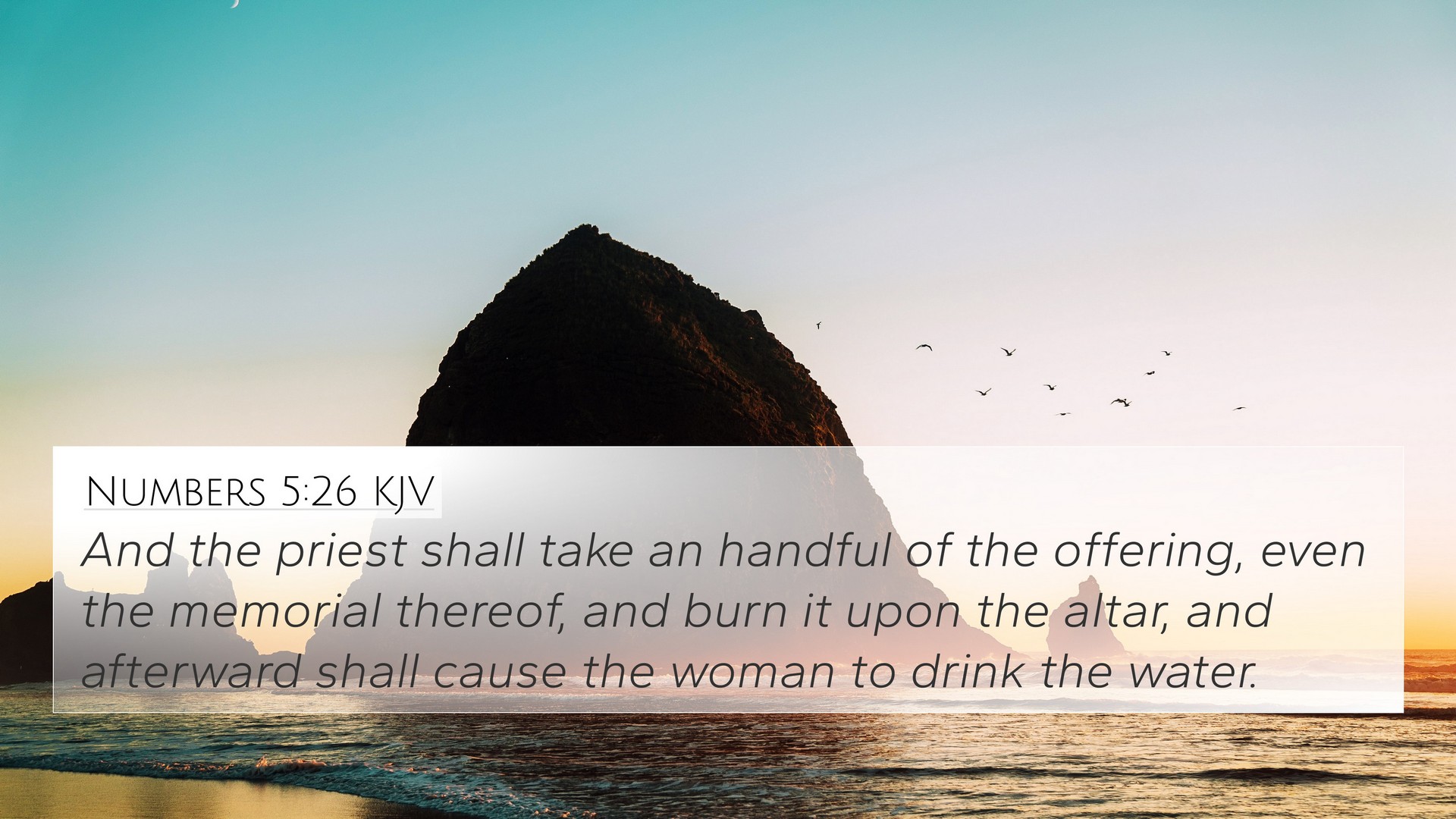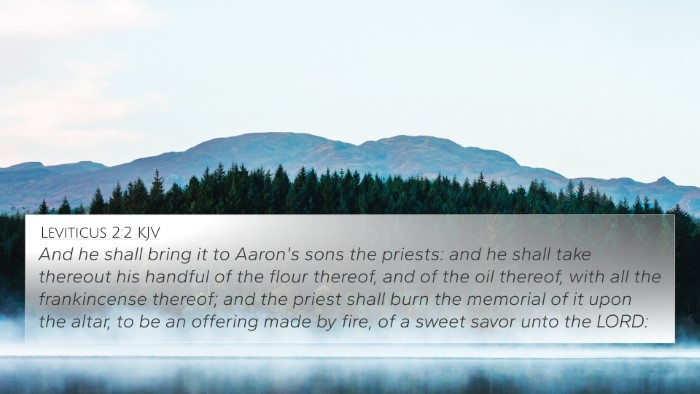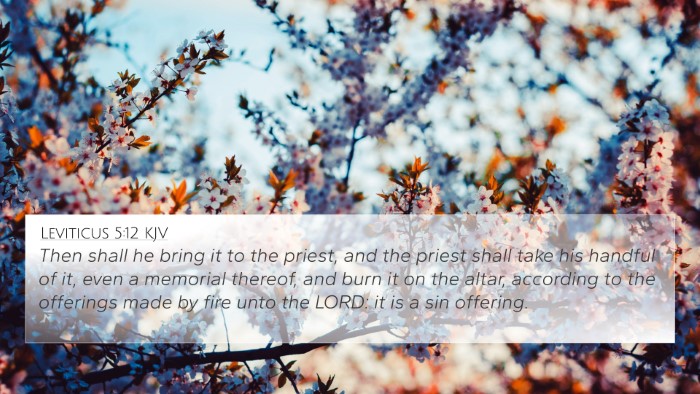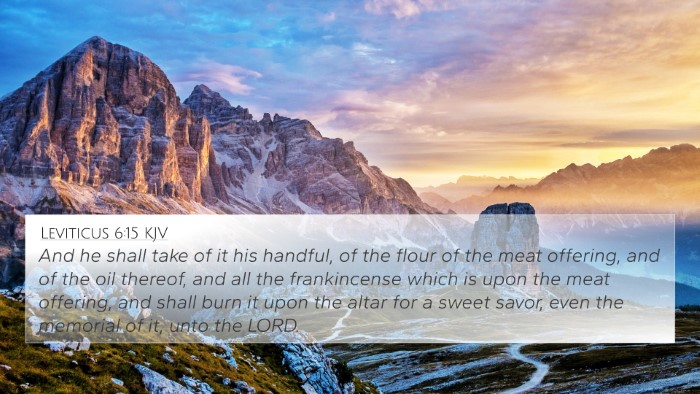Understanding Numbers 5:26
Bible Verse: Numbers 5:26 - "And the priest shall take a holy water in an earthen vessel; and of the dust that is in the floor of the tabernacle the priest shall take, and put it into the water."
Summary of Insights
This verse is part of the ritual prescribed in the Old Testament for dealing with the case of suspected adultery. The ritual involves the use of holy water and dust from the tabernacle, symbolizing purity and divine judgment. This passage demonstrates how God provides means of grace and revelation even in situations of possible sin.
Commentary Insights
-
Matthew Henry:
Matthew Henry emphasizes the significance of the ritual, noting that it serves as a test to reveal the truth. The holy water, infused with the dust from the sanctuary, symbolizes divine presence and judgment. The act is a reminder that God sees all and ensures justice is upheld.
-
Albert Barnes:
Barnes explains that this ritual highlights the seriousness of marital fidelity and the grave implications of unfaithfulness. He notes that the dust signifies human frailty, contrasting with the holiness of the water and emphasizes the need for integrity.
-
Adam Clarke:
Clarke adds that the elements used in the ritual—the water and dust—reflect the interplay of judgment and mercy. He points out that this divine process was meant to protect the innocent while revealing the guilty, showcasing God's desire for order in marriage.
Connections to Other Bible Verses
Numbers 5:26 can be understood in the wider context of the scriptures through several related verses:
- Deuteronomy 22:22: This verse outlines the consequences of adultery, providing a foundation for the gravity of marital unfaithfulness.
- Leviticus 20:10: Here, the punishment for adultery is further defined, illustrating God's strict standards regarding sexual morality.
- Proverbs 6:32: This passage warns against the folly of adultery, emphasizing the severe repercussions of such actions.
- Hebrews 13:4: In the New Testament, this verse reaffirms the honor of marriage and the seriousness of sexual immorality, reflecting the continuity of God's standards across the scriptures.
- Malachi 2:16: God expresses His disdain for divorce and unfaithfulness, underlining the sacredness of the marital bond.
- John 8:4-5: The New Testament narrative of the woman caught in adultery relates to the themes of judgment and mercy found in Numbers 5.
- Matthew 5:27-28: Jesus expands on the commandment against adultery, illustrating the heart attitudes associated with sin.
Thematic Bible Verse Connections
The theme of marital faithfulness and God's justice can be traced throughout the Bible. Here are additional relevant thematic connections:
- Cross-referencing Bible studies often reveal the interconnectedness of scripture, demonstrating how Old Testament laws foreshadow New Testament teachings on grace and morality.
- Tools for Bible cross-referencing can aid in discovering deeper insights into the nature of God’s justice as portrayed through various scriptures.
- Understanding the holistic view of marriage as intended by God is further expanded through biblical texts, serving as a guide for contemporary believers.
Practical Application of Cross-Referencing
To maximize understanding of Numbers 5:26, one may consider:
- How to find cross-references in the Bible to enhance personal study.
- Utilizing a Bible concordance as a guide to linked themes and verses.
- Engaging in comparative Bible verse analysis for a richer theological understanding.
Concluding Thoughts
The ritual outlined in Numbers 5:26 serves not only as a historical account but also as a profound commentary on fidelity, divine judgment, and grace. By cross-referencing this verse with others, readers can glean insights into the serious nature of marital relationships and God's overarching desire for purity among His people.






